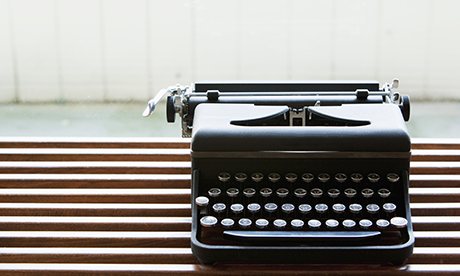7/16/2014

Germany 'may revert to typewriters' to counter hi-tech espionage
NSA inquiry head Patrick Sensburg claims communications technology mistrusted in wake of US spying allegations

The ultimate counter-espionage tool? Photograph: Corbis
German politicians are considering a return to using manual typewriters for sensitive documents in the wake of the US surveillance scandal.
The head of the Bundestag's parliamentary inquiry into NSA activity inGermany said in an interview with the Morgenmagazin TV programme that he and his colleagues were seriously thinking of ditching email completely.
Asked "Are you considering typewriters" by the interviewer on Monday night, the Christian Democrat politican Patrick Sensburg said: "As a matter of fact, we have – and not electronic models either". "Really?" the surprised interviewer checked. "Yes, no joke," Sensburg responded.
"Unlike other inquiry committees, we are investigating an ongoing situation. Intelligence activities are still going on, they are happening," said Sensburg.
Last week, Merkel's government asked the CIA's station officer in Germany to leave the country after an employee of the German intelligence agency BND confessed to passing confidential documents to the US secret service. The ongoing investigation prompted speculation that the CIA may have actively targeted the Bundestag's NSA inquiry committee.
Last year, the Russian government reportedly took similar measuresafter the extent of US electronic surveillance was revealed by the whistleblower Edward Snowden.
The federal guard service, a powerful body tasked with protecting Russia's highest-ranking officials, put in an order for 20 Triumph Adler typewriters, which create unique "handwriting", that allows the source of any documents created on them to be traced.
But judging by the reaction to Sensburg's comments, manual typewriters are unlikely to be widely adopted in German political circles.
"Before I start using typewriters and burning notes after reading, I'd rather abolish the secret services," tweeted Martina Renner, an opposition member of the parliamentary committee investigating the activities of US and other intelligence agencies in Germany. Sahra Wagenknecht, Die Linke party's deputy chair, described the suggestion as grotesque.
Christian Flisek, the SPD's representative on the committee, told Spiegel Online: "This call for mechanical typewriters is making our work sound ridiculous. We live in the 21st century, where many people communicate predominantly by digital means. Effective counter-espionage works digitally too. The idea that we can protect people from surveillance by dragging them back to the typewriter is absurd."
Yet while Sensburg may regret his comments, there is little question that revelations about digital surveillance have triggered a fundamental rethink about how the German government conducts its communications.
"Above all, people are trying to stay away from technology whenever they can," wrote Die Welt. "Those concerned talk less on the phone, prefer to meet in person. More coffees are being drunk and lunches eaten together. Even the walk in the park is increasingly enjoying a revival."
Last November, in the immediate aftermath of the revelations of NSA monitoring of Merkel's mobile phone, the German government instructed its MPs to only use encrypted mobile phones for sensitive calls. The use of iPhones for intra-governmental communications is reportedly banned.
Since then, some have even questioned whether the state-of-the-art "Secusmart" encryption mobile currently used by the chancellor is safe from bugging attempts.
The Bundestag's NSA inquiry committee has found its own way of protecting itself from surveillance: before every meeting, members leave their mobiles in a metal box in an adjacent room, in which any remaining snippets of conversation are drowned out by the music of Edvard Grieg played at full blast.
No comments:
Post a Comment